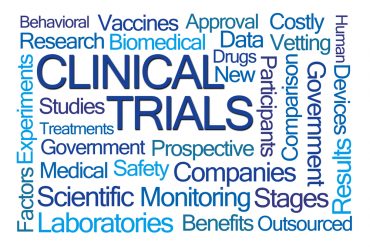
In the news this week: digital twins, processor market consolidation with implications for AI, and solutions that make it easier to deploy to any platform.
Keeping pace with news and developments in the real-time analytics market can be a daunting task. We want to help by providing a summary of some of the items our staff came across each week. Here is a short list of some news from this week:
Ansys announced it is teaming with Microsoft to advance the state of the art in engineering simulation across industries, including industrial manufacturing and automotive. Integrated with Microsoft Azure cloud, HPC, digital twin, and IoT services, Ansys’ solutions will help users to swiftly solve some of the most challenging engineering problems. Some key points to note about the partnership synergies include:
- Ansys Cloud, the underlying platform for running Ansys products in the cloud, integrates Azure cloud and HPC services with Ansys flagship simulation technologies. New features will enable customers to use their existing software licenses and reduce modeling run times by increasing cores per job. Additionally, the features will deliver tremendous price-performance improvements and incorporate customers’ existing Azure contracts. This will make it easier for larger organizations that have traditionally leveraged on-premises HPC to migrate to Ansys Cloud — equipping teams with extra capacity during peak usage.
- Ansys is working with Microsoft to integrate Microsoft Azure Digital Twins with Ansys Twin Builder to help customers better understand the current and future performance of operational assets. Ansys’ runtime digital twins will be natively represented in Azure Digital Twins.
- Ansys is also collaborating with Microsoft to offer cloud-enabled autonomous vehicle (AV) simulation capabilities to joint customers. Ansys VRXPERIENCE, an AV virtual test platform, can unlock massive scalability when run on Azure, empowering users to test drive millions of virtual miles across countless scenarios in an expedient manner — greatly optimizing safety and development costs. The platform’s general availability is planned for January 2021, and Ansys is exploring joint go-to-market opportunities with Microsoft.
Red Hat announced Red Hat Enterprise Linux 8.3, the latest version of its enterprise Linux platform. Generally available in the coming weeks, Red Hat Enterprise Linux 8.3 fuses the stability required by IT operations teams with cloud-native innovation, providing a more stable platform for next-generation enterprise applications. The latest enhancements to the platform bring new performance profiles and automation, reinforced security capabilities, and updated container tools. Red Hat Enterprise Linux 8.3 further expands Red Hat System Roles, which provide prescriptive and automated ways for operating system-specific configurations. Newly supported roles now include kernel settings, log settings, SAP HANA, SAP NetWeaver, and management. Additionally, Red Hat Enterprise Linux 8.3 refines the platform’s performance with updates to Tuned, a set of pre-configured, architecture-aware performance profiles.
MemSQL announced a name change. The company is now known as SingleStore, which better describes the organization’s expansive value proposition. The new name emphasizes the company and its solution’s ability to change how our customers use data. SingleStore provides a converged data platform for transactions and analytics, which organizations can use to process and analyze their most important time-critical application workloads. It handles structured, unstructured, and semi-structured data and is available in public clouds, on-premises, and in hybrid deployments. Along with the name change, the company announced an expanded vision for SingleStore. That vision includes the ability to access data located anywhere – even beyond SingleStore – through global federated access that provides greater flexibility and further simplifies cloud data management for organizations.
Intel announced it will acquire SigOpt, a platform provider for the optimization of artificial intelligence (AI) software models at scale. SigOpt’s AI software technologies deliver productivity and performance gains across hardware and software with use cases and workloads in deep learning, machine learning, and data analytics. Intel plans to use SigOpt’s software technologies across Intel’s AI hardware products to help accelerate, amplify, and scale Intel’s AI software solution offerings to developers. SigOpt’s software technologies combined with Intel hardware provide competitive advantages and differentiated value for data scientists and developers, and they complement Intel’s existing AI software portfolio.
AMD announced it will acquire Xilinx. The acquisition brings together companies with complementary product portfolios and customers. AMD will offer its portfolio of high-performance processor technologies, combining CPUs, GPUs, FPGAs, Adaptive SoCs, and deep software expertise. Such solutions and expertise underpin high-performance computing platforms for cloud, edge, and end devices. Together, the combined company will capitalize on opportunities spanning some of the industry’s most important growth segments from the data center to the edge, with applications in communications, automotive, industrial, aerospace, and defense.
The Linux Foundation’s AI Foundation (LF AI) and ODPi announced they will come together under the new LF AI & Data Foundation. The LF AI & Data Foundation will build and support an open community and a growing ecosystem of open-source AI, data, and analytics projects, by accelerating development and innovation, enabling collaboration and the creation of new opportunities for all the members of the community. As one entity under the Linux Foundation, this consolidated and focused effort will enable additional collaboration and integration in the space of AI/ML/DL and Data. Combining efforts in both spaces will bring developers and projects under a single roof, orchestrated by a single Technical Advisory Council and several committees (Trusted AI, BI & AI), to work together towards building the open-source AI & Data ecosystem and accelerating development and innovation.
Carbon Relay announced that Red Sky Ops, its platform for automatically configuring and continuously optimizing containerized applications, now supports dynamic resource tracking and pre-baked queries that allow users to understand resource utilization and optimize the Kubernetes Horizontal Pod Autoscaler (HPA) for efficient scale without the risk of performance issues. Tuning the Kubernetes HPA with the Red Sky Ops machine learning engine removes the guesswork from scale preparation. The solution studies, replicates, and stress-tests Kubernetes applications and then proactively deploys optimal configurations. The machine learning engine tunes the Kubernetes HPA, ensuring that the optimized configurations are identified and implemented to handle anticipated and real-time traffic spikes without overprovisioning. Pod size and target utilization are constantly tested and optimized, which ultimately results in better application performance and lower costs.
Chorus.ai announced a new API and integrations for Zapier and Slack to help to bring the power of Conversation Intelligence (CI) to every enterprise system. The product enhancements bring the power of CI into business intelligence tools like Tableau, Mode Analytics, and Looker, and workflows used by world-class revenue teams today, allowing them to harness the voice of the customer and deep conversation insights within their own environments. These new offerings are only the latest product enhancements from Chorus. In September, the company also launched enhancements to the Chorus.ai portfolio. The solutions provide the information and guidance needed to drive team performance, prevent revenue risks, and make better strategic decisions.
Finastra announced the availability of Fusion Data Cloud, a suite of solutions is designed to help financial institutions improve customer engagement, grow revenue, digitize processes for efficiency, and manage risk. Underpinned by the FusionFabric.cloud open developer platform, Fusion Data Cloud provides a data ecosystem. Supported by secure Microsoft Azure technology, Fusion Data Cloud lets banks share their data with leading fintechs, as well as ingest data from external data sources, to create innovative new data solutions in weeks instead of months. The solution also offers actionable insights. It uses artificial intelligence (AI) and machine learning (ML) algorithms to create predictive and prescriptive analytics and delivery of real-time decision-making and insights as a service.
AVEVA, a global leader in engineering and industrial software, today announced that it has signed an agreement to help accelerate Shell Global Solutions International B.V’s digital transformational strategy by deploying AVEVA’s cloud software solutions. Specifically, AVEVA will provide Shell with its Engineering Data Warehouse technology, which is one of the building blocks of the digital twin. AVEVA’s Engineering Data Warehouse will enable Shell through its Digital Twin to drive asset reliability, enhance efficiency, and reduce unplanned downtime. The solution will also support in providing actionable insights right from the site operator to the Asset Leadership Team.
Dremio announced innovations that deliver sub-second query response times directly on cloud data lakes and support for thousands of concurrent users and queries. In addition, Dremio now includes built-in integration with Microsoft Power BI, enabling users to instantly launch the data visualization software from Dremio and immediately start querying data via a direct connection. The latest Dremio product release enables companies to run production BI workloads, including interactive dashboards, directly on Amazon S3 and Azure Data Lake Storage (ADLS) – without having to move data into data warehouses, cubes, aggregation tables, or extracts. The new capabilities deliver simple, self-service access to data and enable analysts to see results immediately, eliminating their dependency on manual ETL processes or data engineering while reducing the costs associated with data warehousing.
Schneider Electric announced a partnership with EdgePresence and Accu-Tech to deploy edge points-of-presence (PoPs) to help businesses use edge computing. Through the partnership, EdgePresence will nationally deploy edge data centers that include a fully integrated Schneider Electric EcoStruxure Data Center solution. As the IT distributor, Accu-Tech will simplify the deployment model to enable increased speed-to-market. Working together to provide robust edge modules, Schneider Electric, EdgePresence, and Accu-Tech will provide customers with the connectivity needed to implement dynamic edge strategies in locations across the U.S.
Amazon Web Services announced the general availability of AWS Nitro Enclaves, a new Amazon EC2 capability that makes it easier to securely process highly sensitive data. AWS Nitro Enclaves helps customers reduce the attack surface for their applications by providing a trusted, highly isolated, and hardened environment for data processing. Each Enclave is a virtual machine created using the same Nitro Hypervisor technology that provides CPU and memory isolation for Amazon EC2 instances, but with no persistent storage, no administrator or operator access, and no external networking. This isolation means that applications running in an Enclave remain inaccessible to other users and systems, even to users within the customer’s organization. With this isolation, the AWS Nitro Enclave owner can start and stop or assign resources to an Enclave, but even the owner cannot see what is being processed inside of AWS Nitro Enclaves.
IBM announced an expansion of capabilities to offer businesses more flexibility when selecting where to deploy workloads, including deployments on-premises, IBM public cloud, and hybrid cloud. The new solutions include containerized software across IBM IT Infrastructure via IBM Cloud Paks and advancements in data storage for containers. The new offerings are designed to help clients implement a hybrid cloud with IBM IT Infrastructure. They offer the ability to infuse AI throughout the business and consolidate databases with IBM Cloud Pak for Data, already available on IBM Power Systems, planned for November on IBM Z. This will help businesses accelerate digital transformation and connect cloud-native applications to existing workloads with IBM Cloud Pak for Integration on IBM Z.
C3.ai, Microsoft, and Adobe announced the launch of C3 AI CRM powered by Microsoft Dynamics 365, an enterprise-class, AI-first customer relationship management solution purpose-built for industries. It integrates with Adobe Experience Cloud and drives customer-facing operations with predictive business insights. Through the partnership, the companies have agreed to integrate Microsoft Dynamics 365, Adobe Experience Cloud (including Adobe Experience Platform), and C3.ai’s industry-specific data models, connectors, and AI models, in a joint go-to-market offering designed to provide an integrated suite of industry-specific AI-enabled CRM solutions including marketing, sales, and customer service.
Siren announced the release of Siren 11.0. The latest version of Siren is a major step forward in enabling investigative teams to quickly conduct advanced Signal Intelligence (SIGINT), Cyber Intelligence (CYBINT), and Open Source Intelligence (OSINT) investigations. Previous versions of Siren focused on smaller teams and required the creation of separate environments per use case; 11.0 introduces support for parallel analyst teams to investigate data in segmented, case-specific data environments. In addition, new functionality has been added, including advanced support for Natural Language Processing (NLP) and the ability to spatially track moving data points.
Rockwell Automation introduced the first capability of its edge strategy with FactoryTalk Edge Gateway to simplify and accelerate IT/OT convergence. FactoryTalk Edge Gateway’s data management capabilities result in up to a staggering 70% reduction in analytics data preparation efforts for data scientists or analysts while providing higher quality OT data. The underlying common information data model is orchestrated by the unique Rockwell Automation FactoryTalk Smart Object capability and can be efficiently mapped to on-premises or cloud applications to generate predictive insights across the enterprise. FactoryTalk Edge Gateway is designed to integrate with best-in-class ecosystem solutions like Microsoft Azure and FactoryTalk InnovationSuite, powered by PTC, and a variety of big data, IIoT, and cloud applications.
If your company has real-time analytics news, send your announcements to [email protected].
In case you missed it, here are our most recent previous weekly real-time analytics news roundups:




























